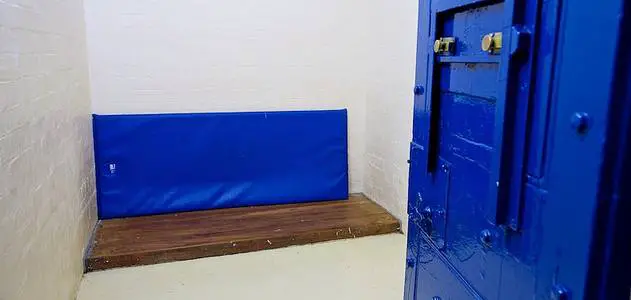The report, embedded below for you convenience, reveals that health care was the area most in need of attention.
Specifically on the Isle of Wight, the on-call system was found to be unsatisfactory. Also highlighted are failings in clinical record-keeping and the control of medications, and none of the medical rooms being fit for purpose.
Considered more significant by the inspectors was the “lack of strategic oversight and control”.
Arrangements for substance misuse interventions were patchy across the area, with a low referral rate; and mental health provision was similarly complex and inconsistent. The number of people detained on mental health grounds in police custody was reducing, but remained too high.
Overall, the force has recently improved its strategic grasp of custody work, but needs to
extend this to health care provision, and this report highlights a number of other areas where
consistency and compliance can be further improved across the force.
Chief Inspector Jason Kenny, Hampshire Constabulary’s strategic lead for Force Custody, said:
“We welcome the joint HMIC / HMIP report and are particularly pleased with its endorsement of our decision to centralise the management of custody within the force.
“We recognise we have a duty of care to everyone who comes into contact with the police service including suspects when they are brought into custody. These persons include some of the most vulnerable people in our community and it is only right they are treated with care and compassion while being lawfully detained for the purpose of public safety or to allow us to effectively investigate crime.
“I am encouraged, therefore, by the Joint Inspectorates’ conclusion that our staff were positive and considerate in their treatment of detainees, and very caring towards vulnerable people, and that our custody managers were fully aware that detention needed to be justified in each case with good attention being given to legal rights.
“We make continuous improvements to custody and since the inspection we are now working more closely with our medical services provider to improve health care. We are doing this through enhanced monitoring and through sharing and learning from critical incidents with our partners.
“I am currently the chair of a partnership board which includes health care professionals and which is focused on developing the tendering process for commissioning health care in custody. This will ensure not only that the service in custody is improved but will also deliver better support for detainees once they return to the community in order to help reduce re-offending.
“Anyone who is brought into custody will undergo an assessment to determine what level of care they require and people with disabilities and mental ill health will receive additional support. We are making greater use of training to ensure this process is consistent across the force.
“We are also committed to ensuring young and vulnerable people get the right level of support while they are in custody through the provision of appropriate adults. We regularly meet with the Youth Offending Team and our appropriate adult services provider to ensure we are achieving this aim. This was recently demonstrated by the force in its response to a High Court judicial ruling relating to 17-year-olds in custody, the force having already committed to widening the availability of appropriate adult services to such people.”
Image: West Midlands Police under CC BY 2.0




